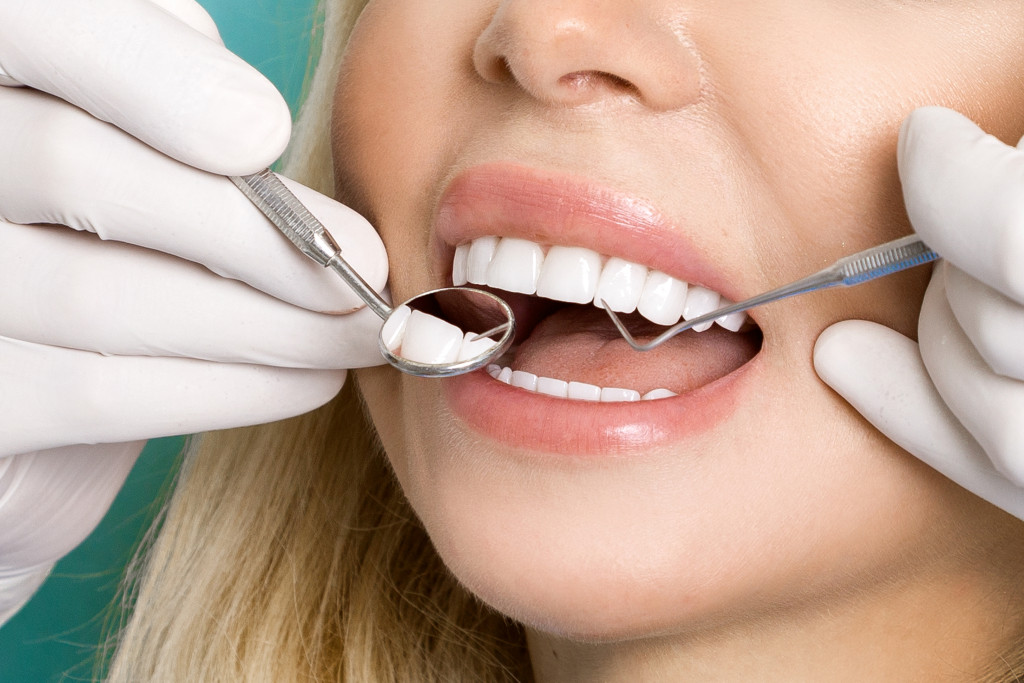- Seeing your dentist regularly is essential for maintaining a healthy mouth and preventing the need for more invasive treatments.
- All-On-4 implants provide an invaluable solution for those with missing teeth and difficulty chewing or speaking.
- Doing jaw exercises correctly helps build strength and coordination in jaw muscles and increases blood flow to the area.
- A soft diet helps reduce muscle tension in the jaw and condition muscles for greater chewing power.
Do you struggle to chew your food? It can be a frustrating experience, but it doesn’t have to stay that way. You can regain your chewing ability and enjoy meals with the proper techniques and exercises.
Whether you are dealing with jaw pain or reduced mobility due to aging, there are steps you can take to improve your chewing power. This article will explore how to regain your chewing ability through exercise and lifestyle changes.
Seek Professional Help
Seeking professional help is the first step in regaining chewing ability. Here are some tips for doing so:
See Your Dentist Regularly

Seeing your dentist regularly is integral to maintaining a healthy mouth and regaining your chewing ability. Many dental issues that can cause problems with masticatory function, such as tooth decay and gum disease, are asymptomatic in their early stages and can be detected by a trained professional before they become more serious.
Regular cleanings are vital for removing calculus buildup, which, if left untreated, could eventually lead to rather significant chewing difficulties. Additionally, early detection helps prevent the need for more invasive treatments down the line due to the rapid progression of certain oral conditions.
Get All-On-4 implants
An All-On-4 implant system is an invaluable solution for people who have impaired chewing or speaking due to missing teeth. This procedure, which involves surgically placing four dental implants in the upper and lower jaw that can support an entire arch of teeth, allows qualified individuals to regain their chewing ability. This revolutionary technique allows patients to eat all the foods they enjoy without fear, worry, or embarrassment.
Additionally, having All-On-4 implants can provide each individual with a beautiful new smile and significantly improve overall facial appearance. The importance of being able to chew is often overlooked, but it provides essential nutrients for proper health. Moreover, many feel enhanced self-confidence after being fitted with their new replacement teeth – which is necessary for long-term mental health.
Incorporate Lifestyle Changes
These lifestyle changes can help improve your chewing ability:
Do Jaw Exercises
Jaw exercises are essential in regaining the ability to chew food properly. To experience the full benefit of jaw exercises, one must perform them correctly. For best results, start by opening and closing your mouth slowly and consistently for several seconds. This will help you build strength and coordination in your jaw muscles.
Additionally, you can use light resistance bands or devices like chewies to provide a more intense workout for your jaw muscles. Doing so helps increase blood flow to that area and speeds up muscle fatigue recovery. Completing efficient jaw exercises can significantly impact how we eat and should be done with guidance from a medical professional or speech therapist.
Follow a Soft Diet
Following a soft diet is essential to returning your chewing ability to full strength. The diet, which focuses on soft or low-resistance foods, helps improve your jaw motion and prevent muscle tension in the area.
When done correctly, it helps restore chewing muscles to their pre-injury state, reducing pain and increasing the range of motion. Foods that are easy to chew, such as scrambled eggs, cooked vegetables, and dairy products, should be added to meals throughout the day.
It’s essential to condition the muscles slowly by making sure that no bites are taken that exceed the jaw’s current limitations; this will help build up underlying strength and reduce stress on the jaw joint over time. The effects of following a soft diet correctly won’t be instantaneous, but with regular adherence, you’ll find that your chewing ability will eventually return to its normal strength and power.
Practice Relaxation Techniques

Practicing relaxation techniques is a crucial way of regaining your chewing ability. Research has shown that focusing on mindful movements, and diaphragmatic breathing can reduce muscle tension, which helps ensure the muscles used for maintaining balanced and strong chewing function remain relaxed.
Taking even a few moments in the day to practice relaxation techniques can help put your mind at ease, potentially relieving some of the anxiety caused by eating problems. It is also important to note that reducing muscle tension when food is being eaten helps increase saliva production, which aids digestion and prevents food from getting stuck in your throat while you chew.
These are just a few tips to help you regain your chewing ability. You can improve your ability to chew and enjoy meals confidently with the right approach.

